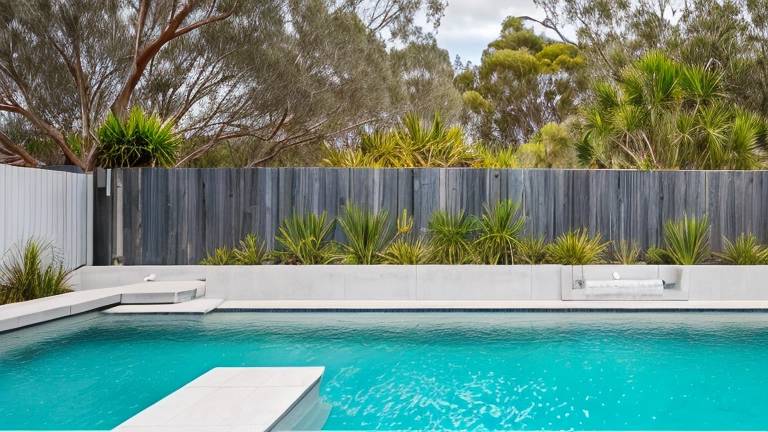
Understanding the importance of post-resurfacing care is crucial for maintaining the longevity and aesthetics of your pool. After resurfacing your pool, your pool is not just visually renewed, but also more vulnerable to chemicals and environmental factors. Proper maintenance ensures the new surface remains intact and effective, preventing common issues like staining, cracking, and premature wear. This initial care sets the foundation for a durable and beautiful pool surface.
Understanding the Importance of Post-Resurfacing Care
After your pool has been resurfaced, taking the right initial steps is key to ensuring its longevity and beauty
Initial Steps Following Pool Resurfacing
Inspecting the Resurfacing Work
Start by thoroughly inspecting the new surface. Look for any uneven patches, bubbles, or missed spots. This is crucial for ensuring the quality of the resurfacing job. Any issues should be addressed immediately by the service provider.
Balancing Chemicals in the Newly Resurfaced Pool
Once the surface is confirmed to be in good condition, focus on balancing the pool’s chemicals. This involves adjusting pH levels, alkalinity, and chlorine concentration. It’s important to do this cautiously as the new surface can be sensitive to chemical imbalances.
Monitoring Water Quality
Regular monitoring of water quality is essential. Keep an eye on clarity, chemical levels, and look for signs of algae growth. Consistent water testing helps in maintaining the perfect balance for a healthy pool environment.
Regular Maintenance Routine for Resurfaced Pools
A regular maintenance routine for resurfaced pools is vital to preserve their condition and ensure safe swimming conditions:
Cleaning and Skimming Techniques
Regular cleaning is essential. Use a soft brush for the new surface to avoid scratches. Skim the surface daily to remove debris and vacuum the pool weekly to keep it free of dirt and leaves.
Managing pH Levels and Chlorine
It’s crucial to regularly check and manage the pH levels and chlorine concentration. Ideal pH levels should range between 7.2 and 7.6, and chlorine levels should be maintained at the recommended levels for your pool size and type. Use a reliable testing kit for accuracy.
Preventing Algae and Stains
Algae prevention involves maintaining proper chemical balance and regular cleaning. To prevent staining, avoid dropping metal objects in the pool and treat any spots immediately.
Consistent adherence to these maintenance practices will ensure your resurfaced pool remains in excellent condition for years to come.
Seasonal Pool Care Post-Resurfacing
Seasonal care is critical for maintaining a resurfaced pool:
Preparing for Summer: Ensuring Optimal Performance
As summer approaches, increase cleaning and monitoring of chemical levels to handle the higher usage. Ensure filters are clean, and check for any repairs needed. Adjust the water level and ensure the pump and heater are functioning well for optimal performance.
Winterizing Your Pool: Steps to Protect the New Surface
In colder months, balance the chemicals before covering the pool. Lower the water level, clean the filters, and add winterizing chemicals to prevent algae growth. Cover the pool securely to protect the new surface from debris and weather damage.
This seasonal approach safeguards the integrity of the pool’s resurfacing throughout the year.
Troubleshooting Common Issues in Resurfaced Pools
Troubleshooting common issues in resurfaced pools involves addressing two key aspects:
Addressing Discoloration and Rough Patches
Discoloration can be caused by chemical imbalances or metal stains. Regularly test and adjust your pool’s chemistry to prevent these issues. Rough patches may result from improper pH levels or poor resurfacing application. Regular maintenance and pH balance are crucial.
Solving Water Clarity Problems
Cloudy water can be due to filtration issues, imbalanced chemicals, or algae growth. Ensure your filter is working correctly, regularly test and adjust chemical levels, and treat for algae if necessary. Consistent care and monitoring are key to maintaining clear, healthy pool water.
Professional Maintenance and When to Seek Help
Knowing when to seek professional help from Pools 101 for your pool maintenance is essential. Persistent water quality issues, continuous algae growth, or surface damages like cracks and peeling post-resurfacing indicate the need for expert intervention. For complex tasks such as electrical work, heater repair, or significant chemical imbalances, Pools 101’s experienced team ensures safety and optimal pool performance. Contact Perth’s pool experts today for a free quote.
Conclusion and Best Practices for Longevity with Pools 101
Consistent care is the cornerstone of maintaining a resurfaced pool’s longevity. Regular cleaning, balanced chemicals, and adapting maintenance to seasonal changes are key practices. Addressing small issues swiftly with the help of Pools 101 prevents larger problems, ensuring your pool remains a valuable addition to your home and leisure.
